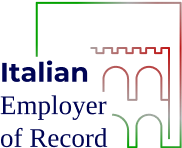20 January 2025
Work legislation changes in Italy in 2025
As 2025 stars, Italy is rolling out new employment rules that will affect both local workers and global professionals looking to build a career in the country. These upcoming policies can be especially significant for expats who want to secure opportunities in Italy and for foreign businesses planning to hire there.
Below, we delve into the most important Italy employment law updates 2025, including changes to the minimum wage, tax codes, leave benefits, worker protections, and remote work arrangements. We’ll also explain how an Employer of Record (EOR) can simplify the transition for companies expanding into the Italian market, as well as for individuals preparing to relocate.
Key legislative changes in 2025
Below are the most significant new rules confirmed by Italian authorities. While some areas of Italian labor laws remain steady, these notable reforms have the potential to affect a broad range of workers and employers.
Minimum wage adjustments
Though Italy historically has not enforced a nationwide minimum wage (relying on collective bargaining agreements instead), discussions at the governmental level have signaled 2025 as a potential milestone for creating a statutory baseline.
Instead, base pay rates are established through National Collective Agreements (NCAs), which vary according to the specific contract category.
Proposals suggest aligning with average wage growth, possibly affecting industries with less robust collective bargaining coverage.
Recent debates in Parliament point toward a figure that mirrors European directives, ensuring a decent standard of living. Collective agreements may still override a general rate, meaning employers must verify the latest negotiations in their specific sector.
Tax regulations and updates
Italy’s Imposta sul Reddito delle Persone Fisiche (IRPEF) remains progressive, with higher earners paying more.
For annual earnings up to €12,000, no tax is applied (0%), placing this bracket in a no-tax zone. From €12,001 to €28,000, the rate remains at 23%. Income between €28,001 and €60,000 is expected to be taxed at 35%, although a 33% bracket was briefly considered but now seems unlikely. Any amount above €60,000 continues to face a 43% tax rate, the same as before.
In 2025, the Ministry of Economy and Finance (MEF) is rumored to adjust brackets or implement new tax credits that could influence how employers structure payroll.
Watch for small shifts in taxable thresholds, possibly affecting mid-level professionals. Depending on local authorities, foreign businesses operating in Italy could see changes in corporate tax incentives or regional surcharges.
Leave policies
Italy’s parental leave framework traditionally grants mothers five months of leave—usually two months before birth and three months after—at 80% of their salary under most national contracts, although certain collective bargaining agreements may offer higher pay. Fathers, on the other hand, have had significantly fewer guaranteed days off (10 days, which must be taken within five months of the child’s birth)
However, recent reforms indicate the government aims to extend paternity leave even further by 2025, potentially adding one or two more weeks of paid leave, thus narrowing the gap between maternal and paternal entitlements.
Additionally, parental subsidies such as the Assegno Unico Universale (a monthly allowance paid per child) could be more closely aligned with an employee’s average wage in the coming years, reflecting the country’s push for greater financial support of young families.
This might translate to a higher monthly payment for those on moderate to higher salaries, ensuring that an income-based system partially offsets child-related costs. Ultimately, these changes promote shared childcare responsibilities and aim to protect household finances during early parenthood, reinforcing Italy’s commitment to gender equality and a supportive family environment.
Worker misclassification and gig economy
Ongoing issues in the gig economy have led to stricter definitions around Contratti a progetto (project-based contracts) and lavoro autonomo (self-employment). By 2025, Italy may tighten these criteria further to ensure that workers frequently performing employee-like tasks receive the correct protections.
- Refined criteria: The government aims to reduce grey areas in contracts, especially for food delivery and rideshare roles.
- Potential penalties: Companies found repeatedly misclassifying workers could face higher fines or forced back payments to social security (INPS).
Remote and hybrid work provisions
Italy first introduced smart working regulations as temporary emergency measures, but they have since become a normal practice for many office-based roles. In 2025, employers will likely be required to provide more detailed terms around remote or hybrid setups, including who pays for necessary equipment, how employees can “disconnect” after work hours, and where liability lies for home office health and safety standards.
Updated smart working contracts may also outline specific windows of availability, highlight data protection protocols in line with GDPR, and define clear break periods to prevent excessive overtime.
Given that privacy regulations are tightening at both the EU and national levels, companies offering remote options must ensure they store and process personal information securely, which might involve auditing their digital systems or working with legal advisors to meet evolving requirements. This shift toward formalized remote policies underscores Italy’s effort to balance workplace flexibility with employee well-being and regulatory compliance.
Implications for employees and employers
For employees and expats relocating to Italy
Employees and expats relocating to Italy in 2025 will encounter a landscape where potential statutory minimum wage figures, revised parental benefits, and remote-work norms can either open new opportunities or require heightened planning.
On one hand, if a baseline national wage is introduced, individuals entering lower-paid sectors may see a stronger earnings floor than before, while existing collective bargaining agreements in mid- to high-skill roles could also adjust to maintain competitive compensation.
On the other hand, tax adjustments—including any recalibrated IRPEF brackets—could affect how much of your salary ultimately lands in your bank account, which is particularly relevant for foreign professionals juggling multiple income sources or global assets.
For freelancers
For those aiming to freelance or consult in Italy, the further refinement of rules governing lavoro autonomo means you may need to verify that your working arrangement is fully compliant with national standards. If you plan to operate under a Partita IVA (Italian VAT number), staying alert to sector-specific regulations and updated social security obligations will be crucial in avoiding fines.
Moreover, remote or hybrid working contracts may grant you more freedom around location and hours, yet require extra diligence about data privacy, availability windows, and required rest periods.
Overall, the evolving labor laws underscore the importance of planning ahead—engaging with Italian advisors or an Employer of Record can ensure that everything from your employment contract to your tax filings aligns with the latest rules, allowing you to focus on your new role and life in Italy rather than administrative headaches.
For companies
For employers, these evolving rules can reshape hiring strategies and operational budgets. Any newly introduced baseline wage or revised collective agreements might demand salary adjustments, while updated IRPEF brackets could require payroll tweaks.
Tighter rules on independent contracting and remote work protocols—covering equipment or data protection—further raise compliance stakes. Partnering with an Employer of Record in Italy can streamline these challenges, helping foreign firms expanding to Italy stay compliant as regulations shift in 2025.
Employer of record (EOR) services as a solution
Staying ahead of work legislation changes in Italy in 2025 can be challenging, particularly for firms without an established local presence or expats unfamiliar with Italian labor law’s intricacies. Collaborating with an Employer of Record in Italy offers valuable benefits:
For companies
- Payroll management: Incorporates any revised wage standards or tax thresholds directly into each pay cycle.
- Legal compliance: Monitors changes in self-employment definitions, parental leave, and remote work provisions to keep you penalty-free.
- Onboarding: Ensures employment contracts and benefits packages conform to up-to-date labor standards and collective agreements.
For employees and expats
- Streamlined relocation: An EOR manages vital administrative tasks, from work permit and Permesso di Soggiorno support to ensuring your contract meets all legal requirements.
- Accurate tax and social contributions: By handling IRPEF and contributi previdenziali calculations, an EOR prevents issues with incomplete or incorrect filings.
- Focus on career and community: Less time spent deciphering bureaucratic hurdles means you can immerse yourself in Italy’s culture, advance professionally, and enjoy la dolce vita.
Looking ahead: preparing for 2025
From potential statutory minimum wage rules to refined parental leave entitlements and more brilliant remote work guidelines, Italy’s employment law updates 2025 reflect a broader commitment to fair treatment and modern working conditions. Businesses must remain vigilant about compliance, while expats may find new avenues for career growth—provided they keep pace with shifting tax and contractual demands.
Opting for an Employer of Record in Italy allows you to confidently navigate these evolving requirements. If you have questions about the latest legislation changes or how to adapt seamlessly, contact us to consider leveraging EOR services for hands-on expertise. By taking proactive steps now, you’ll stand well-prepared to thrive in an ever-evolving Italian work environment.
This article is for general information only and does not constitute legal advice. For specific guidance on Italian employment law, please consult an appropriate professional or check official government resources such as the Ministero del Lavoro e delle Politiche Sociali.



